The Red Envelope: Billkin and PP Krit’s Take on a Love Story Beyond the Grave
In a cinematic landscape saturated with remakes, reboots and sequels, you might ...
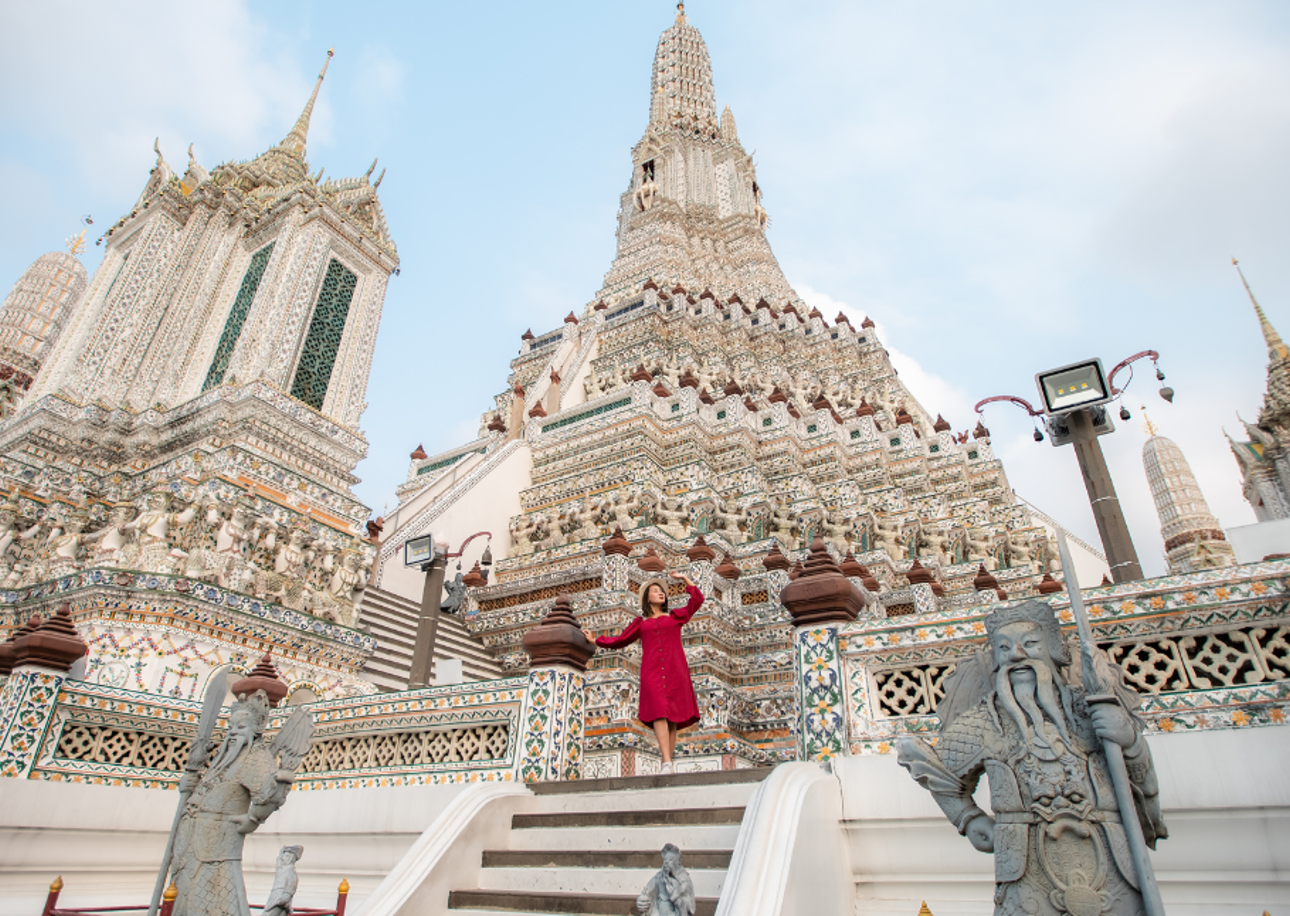
If you’re a food enthusiast who relishes a post-work barbecue buffet, yet finds yourself without company due to everyone’s hectic schedules, ever considered dining alone? There are times when you just want to relax and let your thoughts rest, and going solo is surprisingly enjoyable.
In the land of the rising sun, a cultural shift is taking place – the rise of Super Solo Culture, “Ohitorisama.” This phenomenon is about embracing the art of being alone and finding joy in one’s own company. The Ohitorisama trend is gaining momentum in Japan, reflecting a changing mindset where being single is not seen as a solitary state but rather an opportunity for self-discovery and contentment.
Super Solo Culture or “Ohitorisama” is a Japanese term that translates to “being alone” or “going solo.” The “Ohitorisama trend” in Japan refers to a growing social phenomenon where people are embracing and celebrating the idea of being single and enjoying their own company. More and more people are realising the benefits of spending time alone, whether for self-reflection, pursuing personal interests, or simply enjoying a quiet moment. The Super Solo Culture is becoming deeply ingrained in the fabric of Japanese society, reflecting a shift towards a more inclusive and accepting mindset.
Being alone is not viewed as a lack of connection, but rather as a conscious choice to find personal fulfilment. People are breaking away from the traditional expectations of societal conformity, choosing instead to revel in the freedom that comes with solitude.
If you want to experience the Super Solo Culture firsthand, there are many places to go solo. Koktail has curated lists for you. Embracing the culture is about stepping out of your comfort zone, trying new experiences, and discovering the joy that comes with your own company.
Lat Mayom Floating Market, situated along Bang Ramat Road, stands out as a popular market in Bangkok. Here, you can explore an array of Thai cuisine, desserts, home decor, various appliances, clothing, and pottery. Additionally, you can engage in boating activities along Khlong Bang Ramat to experience the way of life of the community surrounding the floating market. Don’t miss the chance to visit a Thai dessert house open to tourists, offering treats for tasting and purchase as souvenirs.
The market operates on weekends and public holidays from 08:00 to 17:00. For more information, contact Tel. 0 2422 4270.
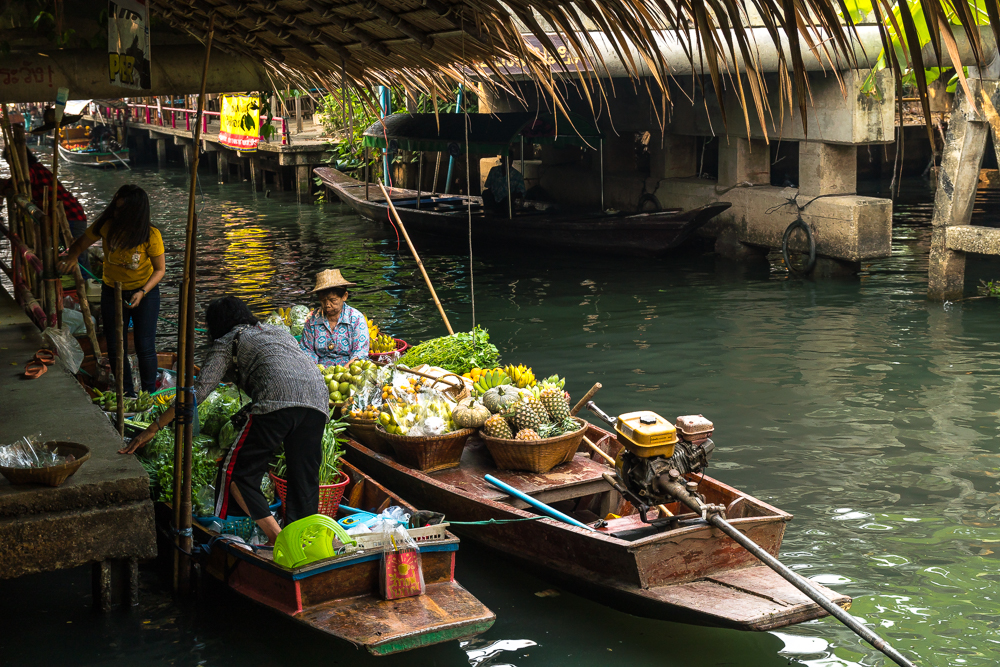
Photo: Courtesy of somethingoffreedom
Wat Arun, a Buddhist temple in Bangkok, Thailand, known as the Temple of Dawn, stands on the west bank of the Chao Phraya River. Wat Arun’s central prang (tower) is decorated with colourful porcelain tiles and seashells, creating a stunning mosaic effect.
Visitors can rent traditional Thai dress from nearby shops for 200-250 baht. Visit between 3:30 pm and 4:30 pm for comfortable temperatures and ideal photo conditions.
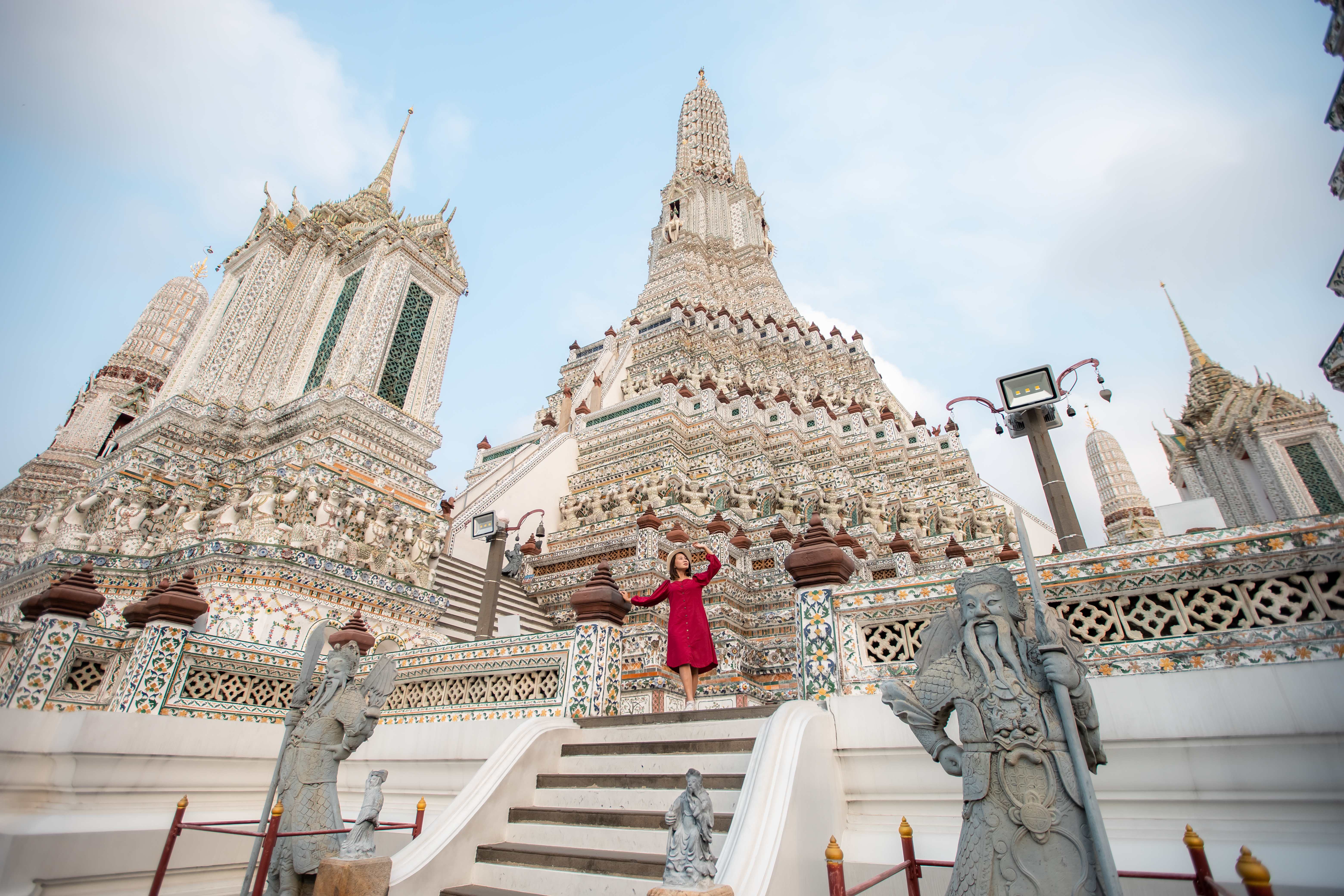
Wachirabenchathat Park, commonly known as Rod Fai Park, is a popular public park located in the Chatuchak district of Bangkok. It is known for its expansive green spaces, jogging paths, and recreational facilities and is a favourite spot, providing a peaceful escape from the bustling city. The park includes a large lake, exercise areas, and various gardens. It’s a great place for outdoor activities such as jogging, cycling, or simply enjoying a leisurely stroll.
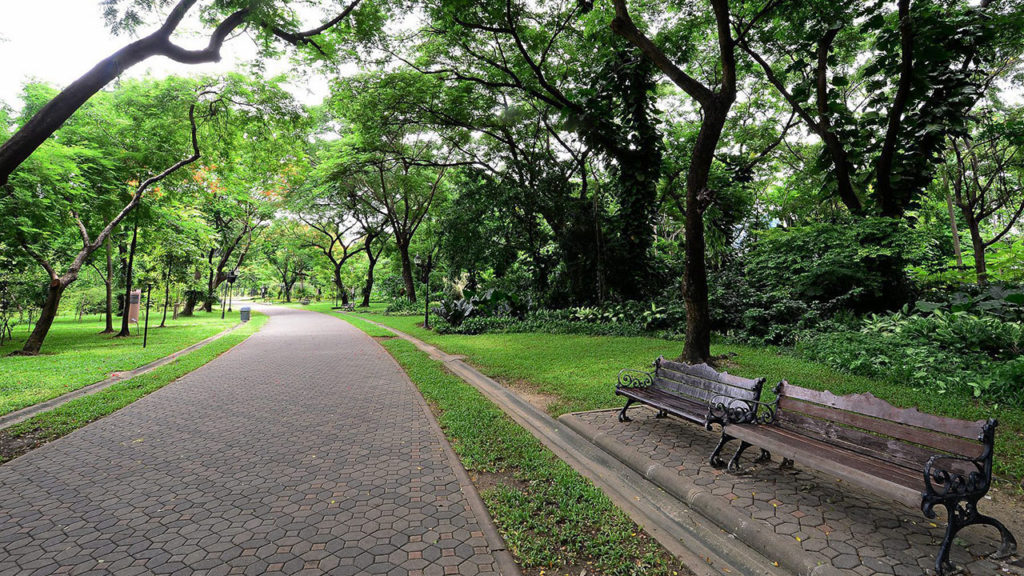
Photo: Courtesy of Air Sunisar
The Artist’s House, also known as Baan Silapin, is a historic residence transformed into an art gallery featuring local artwork, photography, and a puppet theatre. Dating back to the 1800s, Baan Silapin and its surrounding area boasts a charming boardwalk adorned with shops, cafes, local eateries, and a temple. Unique, human-sized statues line the water, and an ancient white stupa stands in the backyard. Inside the building, traditional paintings, masks, and puppets are prominently displayed, and the venue also offers art workshops ranging from string bead crafts to painting.
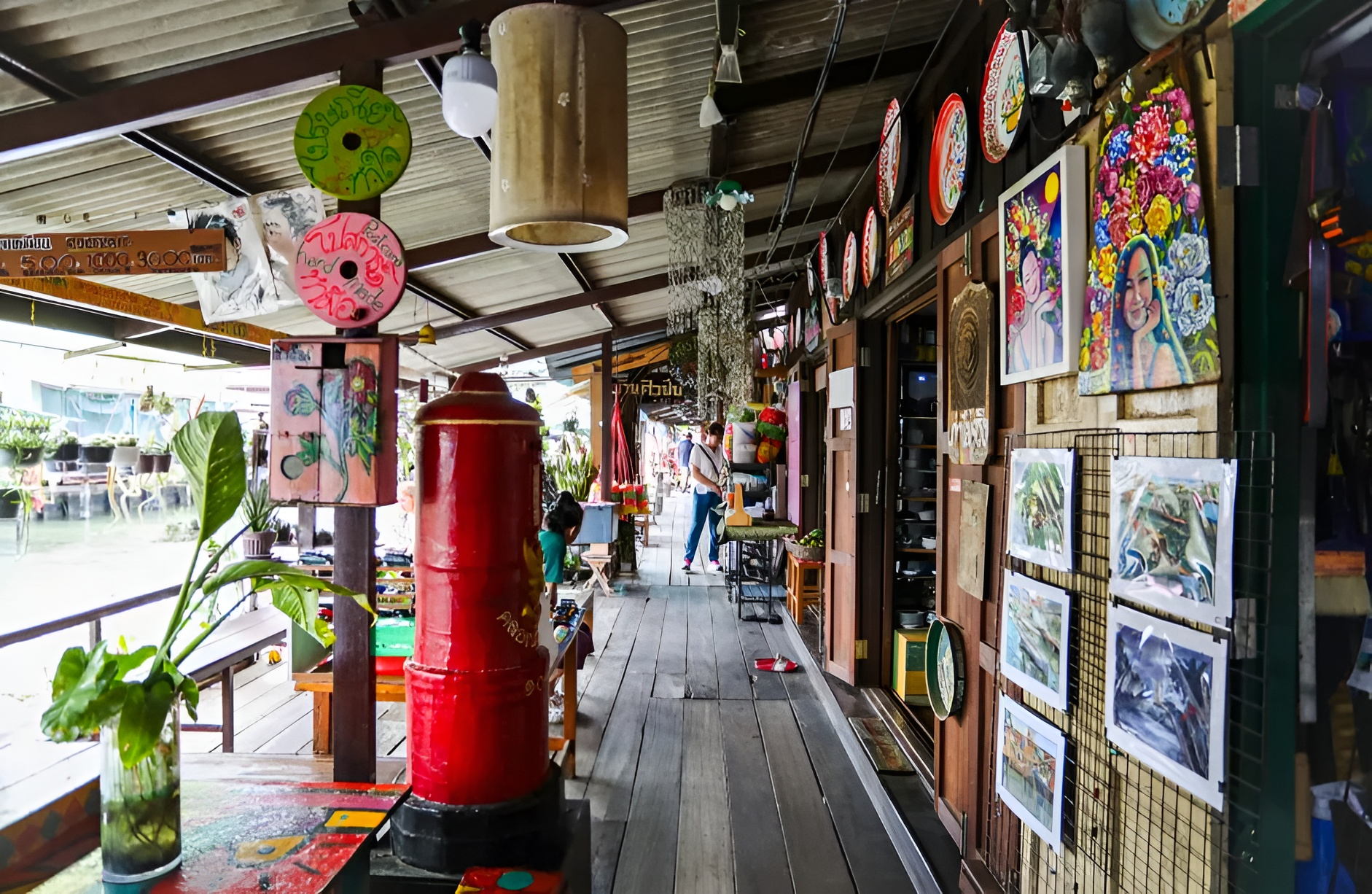
TCDC is a government-supported organisation in Thailand with the primary goal of promoting and supporting creativity and design across different domains. TCDC provides resources, services, and programs to foster innovation in arts, culture, and business. This includes offering design-related workshops, exhibitions, and initiatives aimed at nurturing the creative community in Thailand.

The Museum of Floral Culture in Thailand, established in 2012 by floral artist Sakul Intakul, highlights the significance of flowers in Thai culture. The century-old teak mansion, situated in the Dusit District, features carefully curated gardens and five sections inside, each exploring different aspects of floral culture. From Dusit Gallery showcasing archival flower photographs to Heritage of Thai Flower Culture explaining the role of flowers in Thailand, the museum offers guided tours in English and Thai. The museum also allows afternoon tea on its balcony, overlooking a tropical garden.
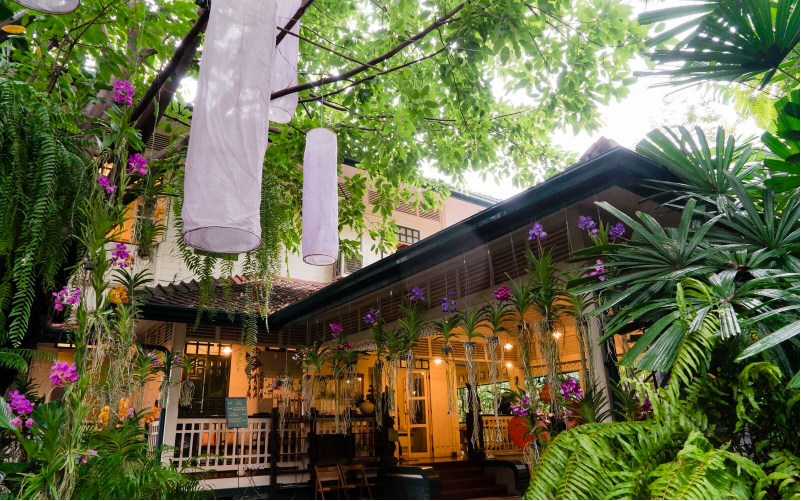
In a cinematic landscape saturated with remakes, reboots and sequels, you might ...
Find out more about your celeb favourites and their most loved vacation ...
These top 5 barber shops in Bangkok are where gentlemen can elevate ...
While traditional TV shows are serving us endless boy-meets-girl tales. Thailand has ...
Sailorr and Molly Santana’s black grills fuse hip-hop swagger with homage to ...
Netflix Thailand has officially announced a new price for base subscriptions We’ve ...
Wee use cookies to deliver your best experience on our website. By using our website, you consent to our cookies in accordance with our cookies policy and privacy policy